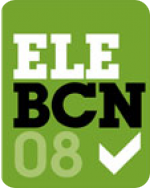
This week's question: Which British Prime Minister was known as 'Jack the Jargon Killer' because he wanted officials to stop using jargon?
a) Tony Blair
b) Robert Peel
c) Winston Churchill
Listen out for the answer to this question at the end of the programme!
Vocabulary from the programme
jargon
Words and expressions which are used in a technical or special way by a group of people in certain situations or places of work
councils
local government
councillors
members of councils who people have elected or voted for to make decisions about what happens in their area
stake-holder engagement
speaking to, liaising with and getting the attention of people or organisations that have an interest in and are important to a specific project
a civic amenity site
a place which is used by the general public
a rubbish tip
a place where dirt, refuse and things that people no longer need are left
to embrace something
to accept, welcome and enjoy something
the vernacular
slang or informal language
shorthand
a quick way to write, say or do something
to flag up
to bring attention to
Extras
Related Links
Jack the Jargon Killer article *
Article on list of jargon*



 En este programa de LdeLengua, el que hace el número quince, vamos a dejar aparcadas por el momento las sesiones habituales del podcast para centrarnos en dos jugosas entrevistas.
En este programa de LdeLengua, el que hace el número quince, vamos a dejar aparcadas por el momento las sesiones habituales del podcast para centrarnos en dos jugosas entrevistas.




















